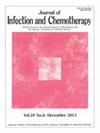日本移植疫苗接种策略(实体器官移植和造血干细胞移植)。
IF 1.5
4区 医学
Q3 INFECTIOUS DISEASES
引用次数: 0
摘要
免疫功能低下患者的传染病管理是管理严重和难治性疾病的关键组成部分,早期诊断和及时治疗干预是基本原则。疫苗可预防疾病(VPD)管理同样至关重要。从卫生经济学的角度来看,这种方法对于预防潜在的棘手情况至关重要。本文综述了日本接受实体器官移植(SOT)和造血干细胞移植(HSCT)的成人患者的免疫策略,这是两种不同类型的免疫功能低下个体。尽管许多推荐的疫苗在这些群体之间重叠,但接种预防的时间和意义有所不同。接受SOT的患者长期保持免疫功能低下,而接受HSCT的患者在停止免疫抑制治疗后会经历一段时间的免疫重建。此外,许多推荐的疫苗接种必须在规定的时间内完成,其管理比免疫能力强的个人更复杂。最近,一些新疫苗,如严重急性呼吸综合征冠状病毒-2 (SARS-CoV-2)、重组带状疱疹、肺炎球菌(肺炎球菌结合疫苗(PCV)15、20、21)和呼吸道合胞病毒(RSV)的疫苗已被引入。建议的疫苗接种指南因国家而异,结合了现有的和新的信息,尽管一些更新可能尚未纳入。本文概述了目前SOT和HSCT受者的疫苗接种指南,强调了日本的具体国家问题以及全球面临的共同挑战,并提出了日本未来疫苗接种政策的最佳策略。本文章由计算机程序翻译,如有差异,请以英文原文为准。
Vaccination strategies for transplantation in Japan (solid organ transplantation and hematopoietic stem cell transplantation)
The management of infectious diseases in immunocompromised patients represents a critical component of managing severe and refractory conditions, with early diagnosis and prompt therapeutic intervention serving as fundamental principles. Vaccine-preventable disease (VPD) management is equally essential. From a health economics perspective, this approach is pivotal in preventing potentially intractable scenarios. This article reviews immunization strategies in adult patients undergoing solid organ transplantation (SOT) and hematopoietic stem cell transplantation (HSCT) in Japan, two distinct categories of immunocompromised individuals. Although many recommended vaccines overlap between these groups, the timing and significance of vaccination prophylaxis differ. Patients who undergo SOT remain immunocompromised long-term, whereas those who have received HSCT experience a period of immune reconstitution following the cessation of immunosuppressive therapy. Additionally, numerous recommended vaccinations must be completed within a defined timeframe, and their management is more complex than that for immunocompetent individuals. Recently, several new vaccines, such as those for Severe.
Acute Respiratory Syndrome Coronavirus-2 (SARS-CoV-2), recombinant zoster, pneumococcal (Pneumococcal conjugate vaccine (PCV)15, 20, 21), and Respiratory syncytial virus (RSV), have been introduced. Recommended vaccination guidance varies across countries, combining established and new information, although some updates may not yet be incorporated. This article provides an overview of current vaccination guidance for SOT and HSCT recipients, highlighting country-specific issues in Japan as well as common challenges faced globally, and proposes optimal strategies for future vaccination policies in Japan.
求助全文
通过发布文献求助,成功后即可免费获取论文全文。
去求助
来源期刊

Journal of Infection and Chemotherapy
INFECTIOUS DISEASES-PHARMACOLOGY & PHARMACY
CiteScore
4.10
自引率
4.50%
发文量
303
审稿时长
47 days
期刊介绍:
The Journal of Infection and Chemotherapy (JIC) — official journal of the Japanese Society of Chemotherapy and The Japanese Association for Infectious Diseases — welcomes original papers, laboratory or clinical, as well as case reports, notes, committee reports, surveillance and guidelines from all parts of the world on all aspects of chemotherapy, covering the pathogenesis, diagnosis, treatment, and control of infection, including treatment with anticancer drugs. Experimental studies on animal models and pharmacokinetics, and reports on epidemiology and clinical trials are particularly welcome.
 求助内容:
求助内容: 应助结果提醒方式:
应助结果提醒方式:


